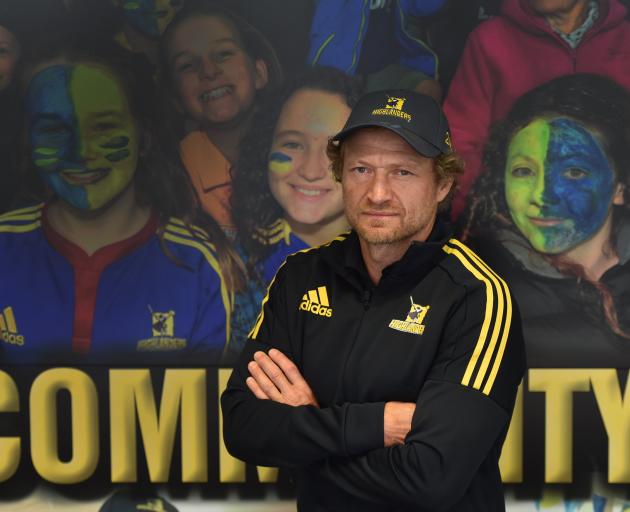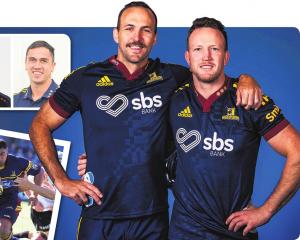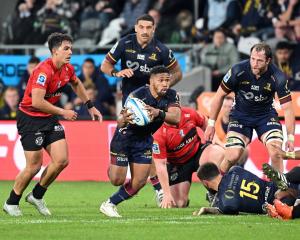
The All Blacks coach had called and wanted some information.
That sort of sums up where Brown’s coaching career is at.
The Highlanders head coach is in hot demand.
The 46-year-old sports nut is widely considered one of the best brains in the game.
But while he has been in the public eye from an early age, when he began showing tremendous potential as a first five of rare quality, the former All Black does not step easily into the spotlight.
He can be reticent with the media and quick to deflect praise, and seems more comfortable operating in the background.
Others talk him up. Brown tends to hide his brilliance.
But the Japanese assistant coach is very driven, very competitive and is always, always thinking about rugby.
His journey from elite rugby player to one of the best coaches in the game was no accident.
Brown started planning while he was still playing.
"I always thought that I would be a coach when I was a player," he said.
"As a first five-eighth, you sort of learn a lot about the game ... and have ideas around how it should be played and how you want your team to play."
Brown said he was lucky to have some great coaches while playing for Otago.
He described Gordon Hunter as the "master of man-management" and Tony Gilbert "had a very similar coaching style".
"He was really smart around the game and he would allow the first five-eighth to control how the game was played, and would have conversations about it afterwards about what was working and what wasn’t working."
Former All Blacks coach Wayne Smith was also a positive influence on Brown.
"He was probably the best pure rugby coach I had. I always took a little bit from how those guys coached ... and tried to put all their experience into my coaching style."
Brown left the Highlanders and Otago in 2004 and headed to Japan. He played for the Sanyo Wild Knights — now Panasonic Wild Knights — and signed on as a player-coach in 2006.
"I did eight years as a player-coach. That gave me a good opportunity to cut my teeth.
"It is a lot easier when you’re a player because you can go on the field and do what you’re trying to coach and help the players through it.
"That was a good transition into the coaching game.
"I came back here and did the same with Otago in 2011 and then sort of retired from rugby and became a fulltime coach."
Brown said his coaching philosophy was shaped around his love of the game. He watches endless games and enjoys analysing matches.
"The attack side is around the space and the defence side is around shutting that down. That battle is always fun as a coach."
Finding an innovative solution to that dilemma has got harder and harder.
Rugby has changed plenty since Brown stopped playing. The athletes are bigger, stronger and fitter. That makes that scrap for space even more challenging.
"You would not be able to operate in the forward pack if you are under 100kg, whereas when I first started, you had David Latta at probably 87kg.
"That’s the biggest change, but also every team has five coaches."
That is five sets of minds looking for some kind of advantage.
There is a lot of analysis going into the game plan but also sometimes it is just instinct.
"You watch a lot of games but as a coach you just see stuff straight away.
"You see what works, what doesn’t and what has got potential. That is the challenge — to take what you see and innovate and make it work."
And that’s Brown’s trademark. He sees what works.













